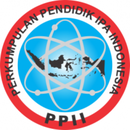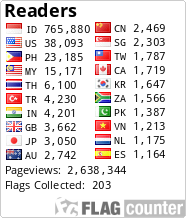Does an Android-Based Interactive Flipbook Affect the Student's Science Concept Mastery?
DOI:
https://doi.org/10.21831/jser.v6i2.50801Keywords:
Android-Based, Interactive Flipbook, Science, Concept MasteryAbstract
Downloads
References
Hamid, A. (2021). Pentingnya Mengembangkan E-Modul Interaktif Berbasis Flipbook di Sekolah Menengah Atas. EDUKATIF: Jurnal Ilmu Pendidikan, 3(3), 911–918. https://edukatif.org/index.php/edukatif/index
Higgins, J., & Moeed, A. (2017). Fostering curiosity in science classrooms: Inquiring into practice using cogenerative dialoguing. Science Education International, 28(3), 190–198. https://doi.org/10.33828/sei.v28.i3.2
Ishaq, K., Azan, N., Zin, M., Rosdi, F., Abid, A., & Ijaz, M. (2020). The Impact of ICT on Students' Academic Performance in Public Private Sector Universities of Pakistan. International Journal of Innovative Technology and Exploring Engineering, 9(3), 1117–1121. https://doi.org/10.35940/ijitee.c8093.019320
Junaidi, J. (2019). Peran Media Pembelajaran Dalam Proses Belajar Mengajar. Diklat Review : Jurnal Manajemen Pendidikan Dan Pelatihan, 3(1), 45–56. https://doi.org/10.35446/diklatreview.v3i1.349
Karimah, S. A., & Churiyah, M. (2021). Meningkatkan kemandirian dan hasil belajar peserta didik menggunakan Kvisoft Flipbook Maker berbasis Android. 1(6), 538–545. https://doi.org/10.17977/um066v1i62021p538-545
Linda*, R., Zulfarina, Z., Mas'ud, M., & Putra, T. P. (2021). Peningkatan Kemandirian dan Hasil Belajar Peserta Didik Melalui Implementasi E-Modul Interaktif IPA Terpadu Tipe Connected Pada Materi Energi SMP/MTs. Jurnal Pendidikan Sains Indonesia, 9(2), 191–200. https://doi.org/10.24815/jpsi.v9i2.19012
Mulyadi, D., Wahyuni, S., & Handayani, R. (2016). Pengembangan Media Flash Flipbook Untuk Meningkatkan Keterampilan Berfikir Kreatif Siswa Dalam Pembelajaran Ipa Di Smp. Jurnal Pembelajaran Fisika, 4(4), 296-301–301.
Octaviyantari, N. L. A., Suarni, N. K., & Widiana, I. W. (2020). Improving Social Studies Learning Outcomes Through Group Investigation Learning Model Assisted with Audio-Visual Media. Journal of Education Technology, 4(3), 349. https://doi.org/10.23887/jet.v4i3.25245
Oktasari, D., Jumadi, Warsono, Hariadi, M. H., & Syari, E. L. (2019). 3D Page-Flipped Worksheet on Impulse-Momentum To Develop Students' Scientific Communication Skills. Jurnal Pendidikan IPA Indonesia, 8(2), 211–219. https://doi.org/10.15294/jpii.v8i2.15737
Ramdani, A., Jufri, A. W., Jamaluddin, J., & Setiadi, D. (2020). Kemampuan Berpikir Kritis dan Penguasaan Konsep Dasar IPA Peserta Didik. Jurnal Penelitian Pendidikan IPA, 6(1), 119. https://doi.org/10.29303/jppipa.v6i1.388
Sari, R. P., Tusyantari, N. B., & Suswandari, M. (2021). Dampak Pembelajaran Daring Bagi Siswa Sekolah Dasar Selama Covid-19. Prima Magistra: Jurnal Ilmiah Kependidikan, 2(1), 9–15. https://doi.org/10.37478/jpm.v2i1.732
Sepriana, R., Sefriani, R., Wijaya, I., & Lestari, P. (2019). Pengujian Validitas Modul Interaktif Simulasi Dan Komunukasi Digital Berbasis Macromedia Director Mx. Edukatif : Jurnal Ilmu Pendidikan, 1(3), 120–126. https://doi.org/10.31004/edukatif.v1i3.25
Siahaan, K. W. A., Lumbangaol, S. T. P., Marbun, J., Nainggolan, A. D., Ritonga, J. M., & Barus, D. P. (2020). Pengaruh Model Pembelajaran Inkuiri Terbimbing dengan Multi Representasi terhadap Keterampilan Proses Sains dan Penguasaan Konsep IPA. Jurnal Basicedu, 5(1), 195–205. https://doi.org/10.31004/basicedu.v5i1.614
Zulkarnain, Z. Y. A. S. H. (2019). Improving Students ' Critical Thinking Learning in Chemistry Learning Using. J. Pijar MIPA, 14(2), 96–100. doi: 10.29303/ jpm.v14i2.1321
Downloads
Published
How to Cite
Issue
Section
Citation Check
License
Journal of Science Education Research allows readers to read, download, copy, distribute, print, search, or link to its articles' full texts and allows readers to use them for any other lawful purpose. The journal allows the author(s) to hold the copyright without restrictions. Finally, the journal allows the author(s) to retain publishing rights without restrictions
- Authors are allowed to archive their submitted article in an open access repository
- Authors are allowed to archive the final published article in an open access repository with an acknowledgment of its initial publication in this journal











